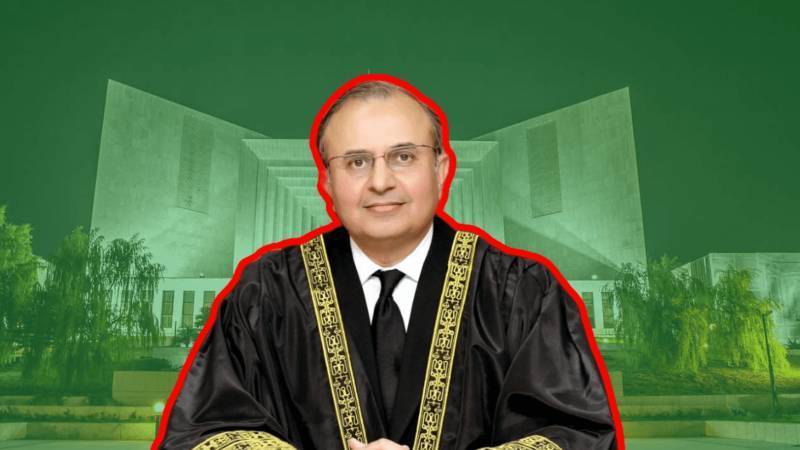
In a major setback to the government and its attempts to introduce a constitutional amendment, eight judges of the Supreme Court on Friday issued yet another clarification to the Election Commission of Pakistan (ECP) ruling that an amendment made in the Elections Act cannot undo the top court's July 12 judgment with retrospective effect.
The two-page clarification issued on Friday further said that the Supreme Court's majority judgment is binding in terms of Article 189 of the Constitution and should have been implemented.
"Since the commission and PTI both have asked for a second clarification, we want to simply clarify and reiterate the well-settled exposition of law that the effect of the amendment made in the Elections Act cannot undo our judgment with retrospective effect," the eight judges explained.
The eight judges, who ruled to grant the Pakistan Tehreek-e-Insaf (PTI) reserved seats after recognising it as a parliamentary party while rejecting the petitioner - the Sunni Ittehad Council (SIC) - as a valid parliamentary party, comprised of senior puisne judge Justice Mansoor Ali Shah, Justice Munib Akhtar, Justice Muhammad Ali Mazhar, Justice Ayesha Malik, Justice Athar Minallah, Justice Syed Hasan Athar Rizvi, Justice Shahid Waheed and Justice Irfan Saadat Khan.
"The Supreme Court granted the relief in the short order to enforce the right of the electorate through political parties to have proportional representation in the reserved seats under paragraphs (d) and (e) of clause (6) of Article 51 and paragraph (c) of clause (3) of Article 106 of the Constitution; therefore, the amendments made in the Elections Act after the release of our short order will have no bearing and the commission is bound to implement the judgment passed by the Supreme Court, in its letter and spirit, without seeking any further clarification," the top court's clarification further stated.
The top court directed to send this clarification to the ECP and representatives of PTI, who had filed applications seeking clarification.
The clarification comes at a time when the ECP is considering whether to notify reserved seats in favour of ruling parties after recent amendments to the Election Act.
"We had already issued clarification before releasing the detailed reasons, and the first clarification issued pursuant to the short order was also merged in our detailed reasons," the clarification added.
"The option given by us to seek clarification in the short order was, in fact, an intermediary window till the detailed reasons were assigned, so in case there arises any misunderstanding as to the spirit or implementation of the Short Order before the release of the detailed judgment, the parties may seek clarification."
The court further noted that it had published the detailed reasons where all legal and constitutional issues raised and argued by the parties were dealt with and answered; therefore, no further clarification is required to be issued.
"The judgment of this court has binding effect in terms of Article 189 of the Constitution and should have been implemented."

